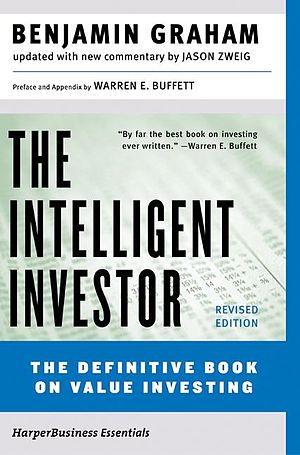 |
In my current re-read of Benjamin Graham’s timeless book “The Intelligent Investor”, I ran across the following paragraph and was immediately struck by the simple, deep truth in the lines:
But note this important fact: The true investor scarcely ever is forced to sell his shares, and at all other times he is free to disregard the current price quotation. He need pay attention to it and act upon it only to the extent that it suits his book, and not more. Thus the investor who permits himself to be stampeded or unduly worried by unjustified market declines in his holdings is perversely transforming his basic advantage into a basic disadvantage. That man would be better off if his stocks had no market quotation at all, for he would then be spared the mental anguish caused him by other persons’ mistakes of judgment.
Jason Zweig, in his notes for the Revised 4th edition of The Intelligent Investor writes:
This may well be the single most important paragraph in Graham’s entire book. In these 113 words Graham sums up his lifetime of experience. You cannot read these words too often; they are like Kryptonite for bear markets. If you keep them close at hand and let them guide you throughout your investing life, you will survive whatever the markets throw at you.
I couldn’t possibly agree more. This is the exact advice that I have given to many folks who become anxious at market downturns and the like. The point is that you should never have money invested that you’ll need in the short term, something like within two years. That money should be placed in rock solid accounts, such as money markets, checking, CD’s, or good ol’ passbook savings accounts.
This allows you to withdraw the money you’ll need without having to concern yourself with current market conditions. The remainder of your investment portfolio is then invested in the normal way, via stocks, bonds, and the like, which you’ll rebalance on an annual basis. As you rebalance, you’ll replenish the short-term account(s) with the coming couple of years’ worth of funds needed (more years if you’re being conservative!).
This doesn’t mean that you’re burying your head in the sand – rather, it means that you’re not allowing short-term “noise” of the market’s fluctuations to cause you to take actions when you’re better off standing still. Use the quote above to reassure yourself when doubts are clouding your judgment: since you’re not forced to sell, you haven’t lost anything.